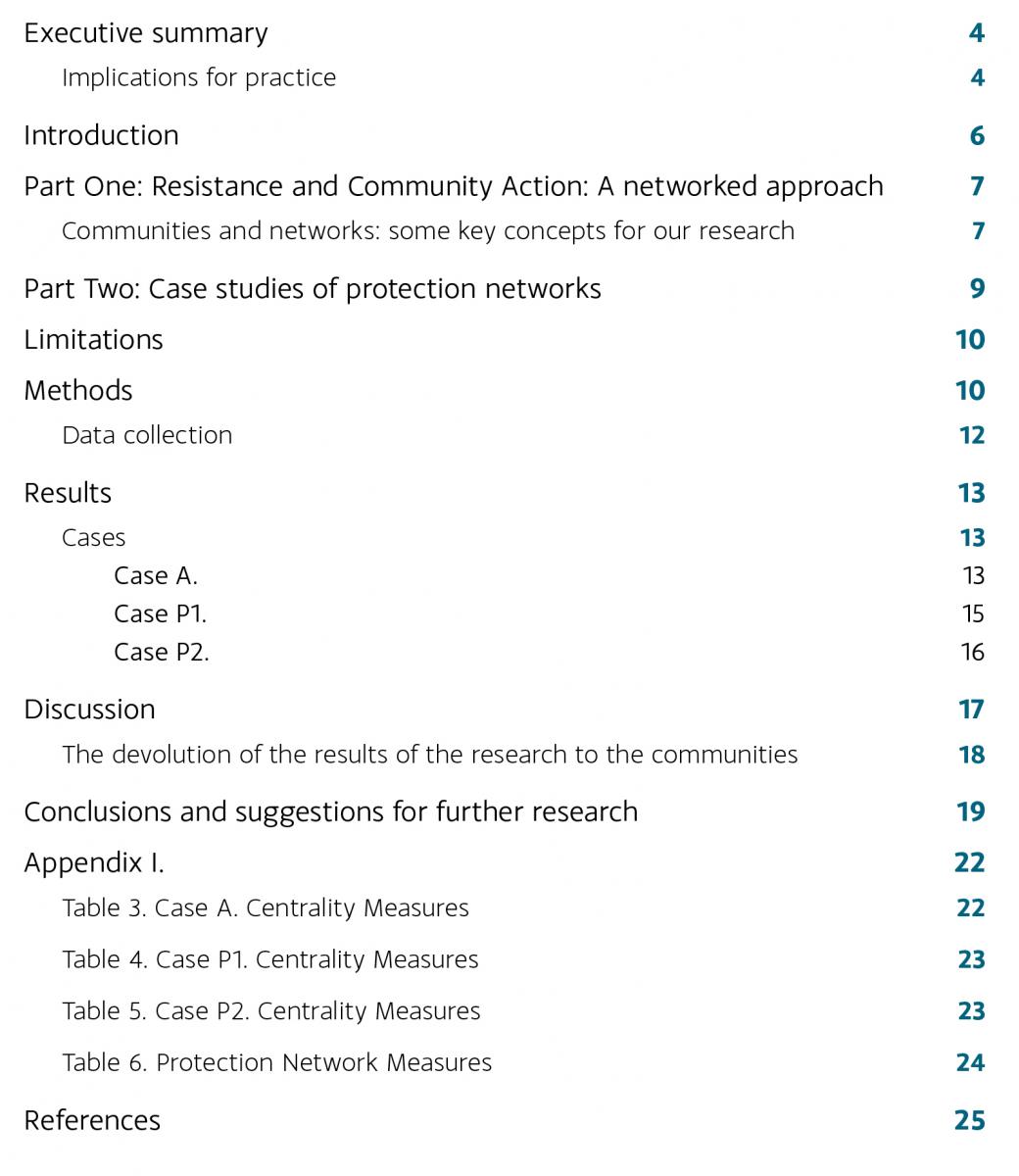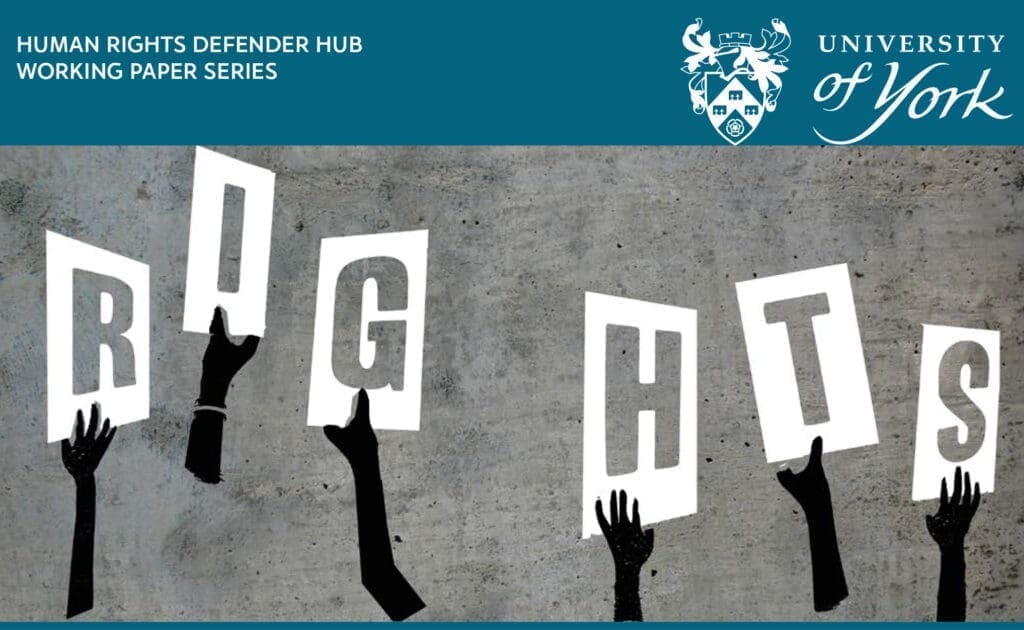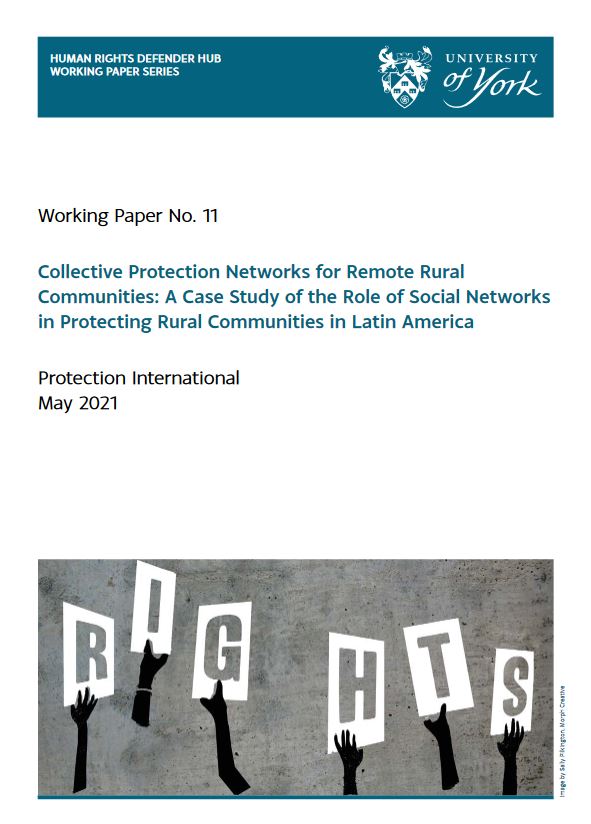Working Paper No. 11
Protection International, May 2021
The Human Rights Defender Hub Working Papers Series
This Working Paper Series aims to make research related to HRDs freely accessible and to promote further discussion and research. The papers in this series present recent research findings, highlight under-explored issues, and set out theoretical or methodological approaches relevant to research concerning defenders. Working papers are intended as works in progress. Publication in this series should not preclude publication elsewhere.
The views expressed in this paper are those of the author(s) and do not imply endorsement by the Centre for Applied Human Rights or the University of York. Comments on each paper are welcomed and should be directed to the author(s).
The Working Paper Series is edited by Piergiuseppe Parisi. It is supported in part by a grant from the Open Society Foundations.
Acknowledgements
This working paper was funded by the Open Society through the HRD Hub, Centre for Applied Human Rights, University of York. The authors would like to acknowledge the hard work of PI teams in the field in Latin America who have participated in a multi-year participatory action research with human rights defenders and communities in remote rural areas of two countries. Our special gratitude goes to the members of the three communities who agreed to participate in the project, and who allowed us to collect the data for this research.
Executive summary
The dominant paradigm for the protection of human rights defenders at risk is the protection of individuals. Emergency grants, relocation programmes, urgent alerts, and awards, for example, tend to focus on protecting individuals at risk. This paradigm does not take into account the complexity of the defence of human rights as a lively process within social systems, linked to our human nature as social and relational beings.
A number of implications for practice follow:
- Social network analysis (SNA) can be applied to describe and understand the work and protection structures of relationships that human rights defenders establish among themselves and with other actors. This analysis might offer several entry points to reinforce the structure and power of the network, even though more research is needed to fully understand which could be the best way to do this.
- When the SNA is undertaken in close collaboration with the communities, the results of the research can be discussed with selected community members so that they can reflect on eventual steps that might be taken to reinforce the community network and its resilience.
- Community members must trust researchers before sharing key information for analyzing their networks. The information obtained to describe and understand the community networks is highly sensitive and it might be used to undermine community structures if it falls into the wrong hands.
About the authors
Protection International field research team:
- Xabiel Zabala (PI senior advisor).
- Elena Caal and Ilaria Tosello (former protection officers in PI Guatemala).
- Betty Pedraza (former protection officer in PI Colombia).
- Alexandra Loaiza (PI senior advisor).
Protection International desk research team:
- Mauricio Ángel Morales, Head of the Policy, Research and Training Unit (PRTU) of PI Global Team (mangel [at] protectioninternational.org).
- Luis E. Eguren, PI Senior Advisor (qeguren [at] protectioninternational.org)
External experts, desk research team:
- Julie M. Birkholz, Networks Matter, Ghent, Belgium(with the collaboration of Alice M. Nah, Centre for Applied Human Rights, University of York, York, UK).
- Review: Piergiuseppe Parisi (Centre for Applied Human Rights, University of York, York, UK).
- Correspondence to Mauricio Angel Morales (mangel [at] protectioninternational.org).
Table of contents

This policy brief, available on the Human Rights Defenders Hub, was made in collaboration between Protection International and York University.
For More information, visit www.hrdhub.org/working-papers.



 Policy brief
Policy brief